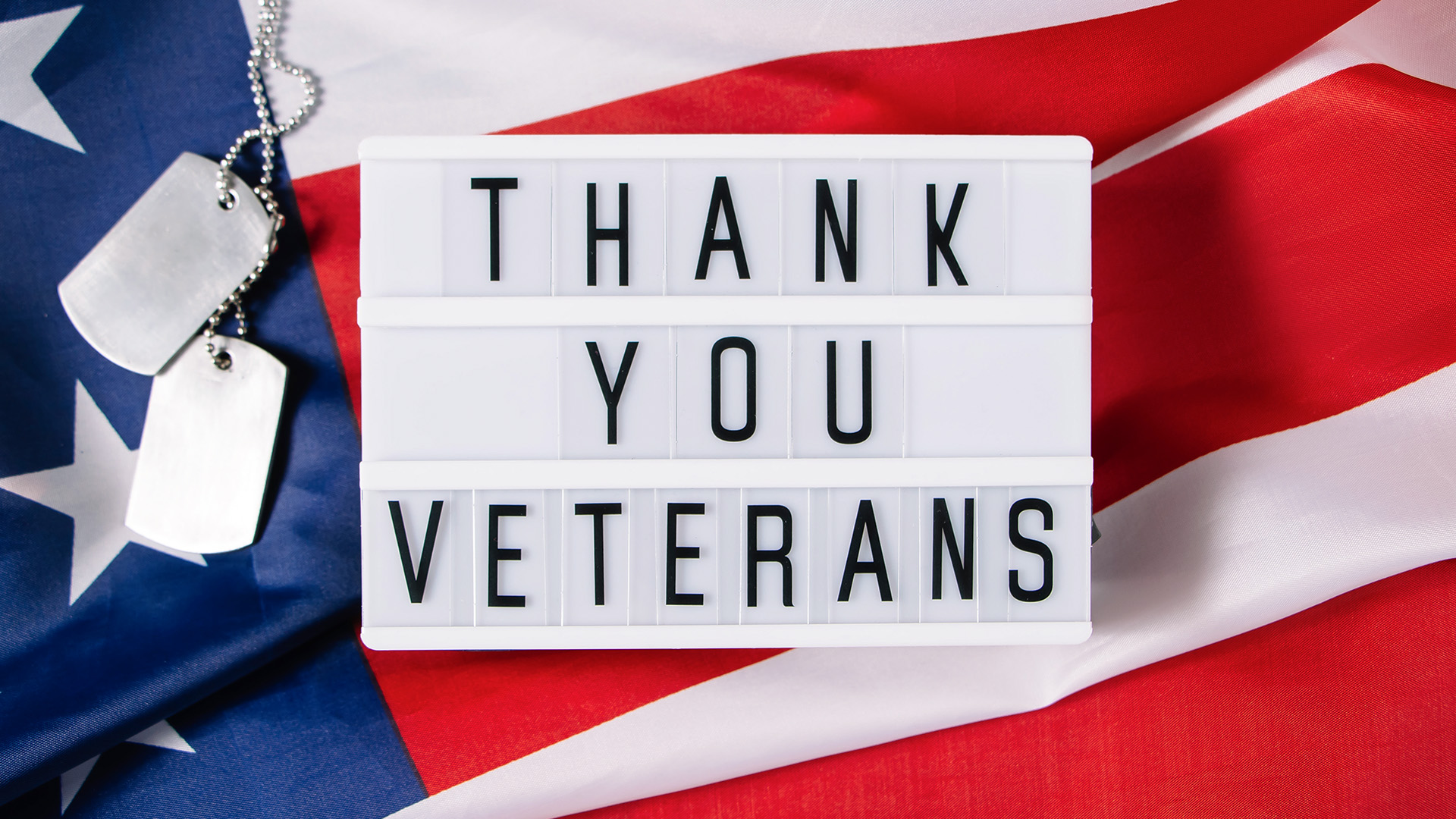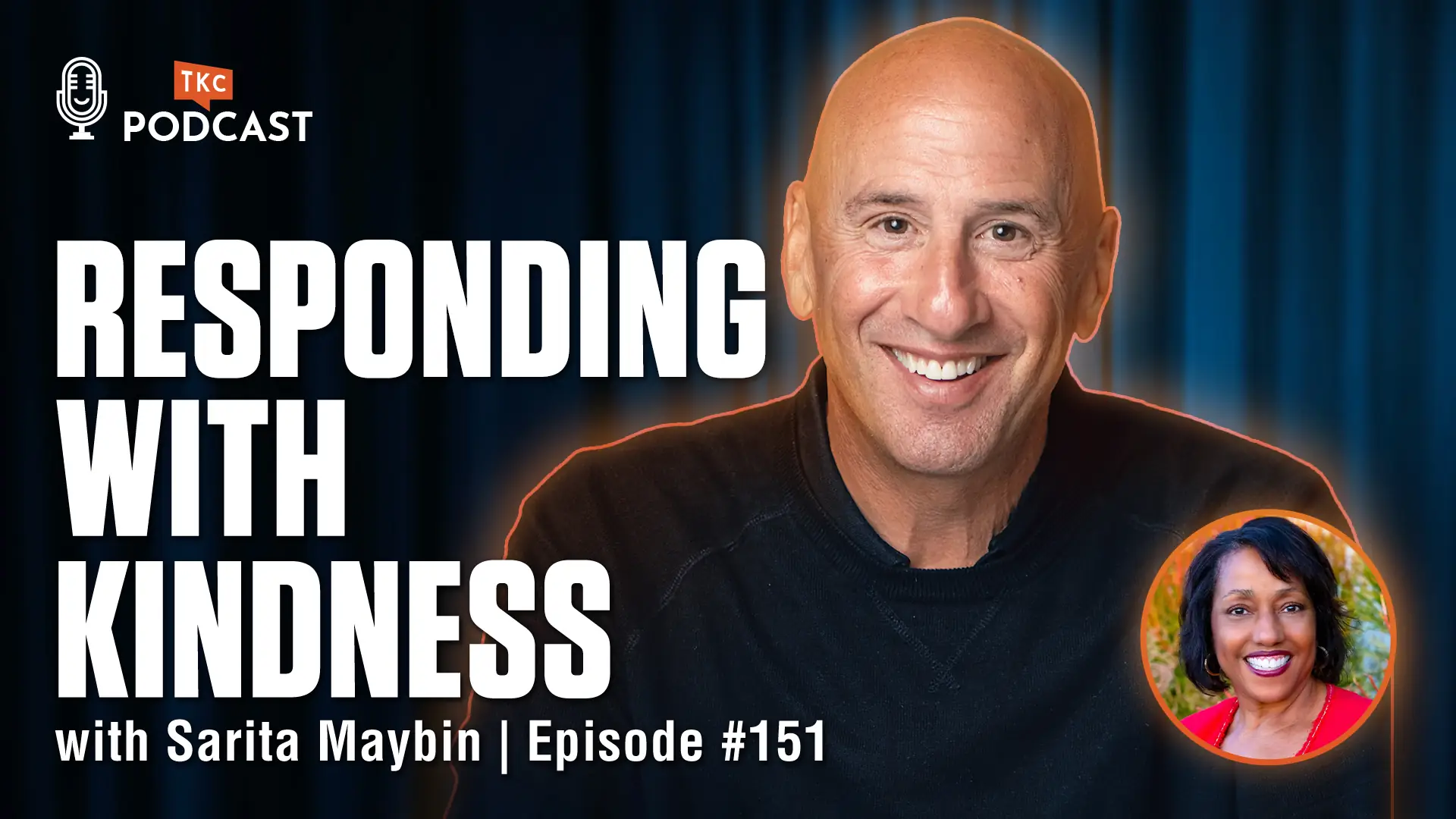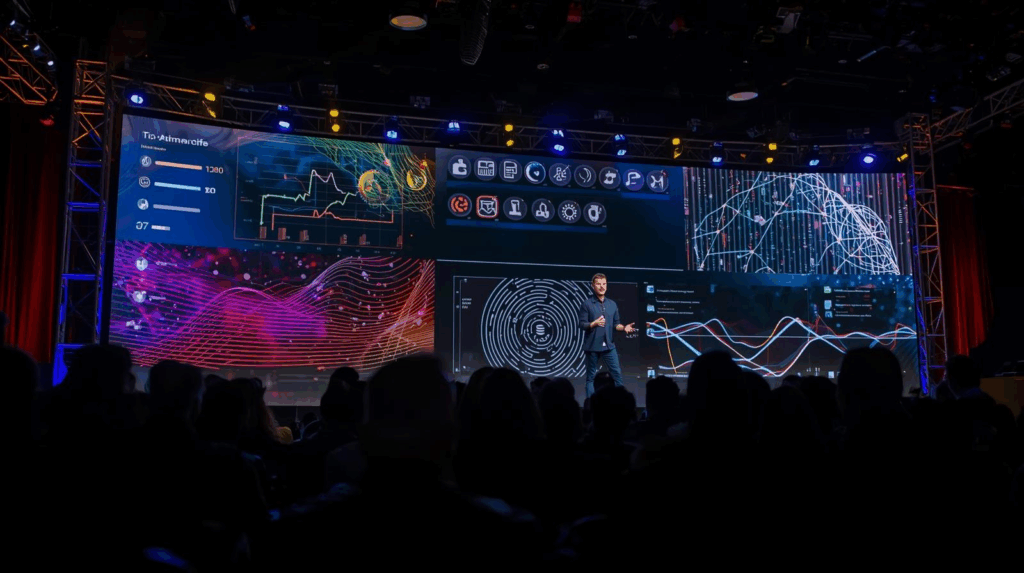
November 11, 2025Why Veterans Teach the Leadership Skills Your Team Needs Most
Veterans Day reminds us that commitment means showing up for others—discover how veteran speakers teach steadiness, trust, and service.
When Noise Drowns Out What Actually Matters
The country feels stretched thin right now. Politics are sharp, social media feeds run louder than actual conversations, and there’s a persistent anxiety about the economy hanging in the air like humidity before a storm. It’s exhausting, honestly. But here’s what cuts through all of it: Veterans Day.
This observance does something rare in our current moment—it reminds us that before the commentary, before the hot takes and performative posts, there was a commitment. Ordinary people pledged themselves to something larger than self-interest: neighbors, principles, our Constitution. Last year, I wrote about gratitude for veterans. This year, I’m thinking about the choice to keep showing up when no one’s clapping, when the cameras are off, and when the work gets repetitive.
In this piece, I want to explore what commitment actually looks like in practice, why military leaders make some of the most effective keynote speakers for corporate audiences, and how you can bring these lessons into your next event. Additionally, I’ll share profiles of veterans who don’t just talk about values—they operationalize them for teams that need steadiness right now.
The Unsexy Truth About Real Commitment
Here’s what nobody tells you but our veterans know very well: commitment isn’t romantic. It’s not the stirring music and slow-motion flag-waving you see in commercials. Commitment is repetitive. It’s the early wake-up call when your body wants five more minutes. It’s the quiet standard you hold when cutting corners would be easier, and no one would know the difference. It’s the “I’ve got your six” said with actions, not hashtags.
In a divided moment, Veterans Day serves as a compass—pointing us back to duty, valor, and the courage to carry one another. Consequently, this matters more than ever for event planners and meeting professionals trying to create experiences that actually move people. Your attendees don’t need another speaker who delivers polished platitudes. They need someone who’s been in the crucible and can teach them how to show up when it counts.
I spend my days matching speakers to stages, and there’s a pattern I’ve noticed: when organizations book military keynote speakers, something shifts in the room. The energy changes. People lean forward. Phones go down. That’s because veterans carry a currency that’s increasingly rare—earned authority. They’ve made decisions where the stakes were life and death, not quarterly earnings. Therefore, when they talk about leadership, trust, or crisis management, audiences know it’s not theory.

This Thursday: A Conversation About Crisis Leadership
Speaking of earned authority, this Thursday, November 13, I’m sitting down with Robert J. Darling on my podcast. As we approach the 25th anniversary of 9/11 next year, Robert’s perspective from inside that day offers a sober lesson in crisis management and moral clarity under unimaginable pressure. What does commitment look like when every second counts and there’s no playbook? We’ll go there together.
Robert was a White House military aide serving in the Presidential Emergency Operations Center on September 11, 2001. His story isn’t about heroics in the traditional sense—it’s about the hundreds of micro-decisions that leaders make when the world is falling apart and people are looking to you for direction. Furthermore, his insights translate directly to corporate crisis scenarios: when your company faces a PR disaster, when a product fails spectacularly, when a key leader exits unexpectedly. The principles remain the same.
Subscribe so you don’t miss this conversation. I promise it’s not your typical interview. We’re going deep on the tension between speed and accuracy, how to separate signal from noise when everyone’s shouting, and what it means to carry the weight of decisions that affect other people’s lives.
Nine Veterans Who Make Audiences Feel It
I want to introduce you to veteran speakers who make commitment tangible for corporate audiences. These aren’t motivational speakers who happened to serve. These are leaders who bring frameworks, systems, and stories that translate directly to business leadership challenges. Moreover, each brings a distinct perspective shaped by their unique military experience.
Robert J. Darling teaches crisis, clarity, and consequence. On the world’s worst day, his job didn’t change: protect, decide, serve. Robert shows audiences how to separate signal from noise under pressure, translate fear into focus, and leave the room with a plan instead of platitudes. If your team needs steadiness when the variables won’t cooperate, start with him. His approach to crisis management draws from that September morning when he stood in the PEOC with Vice President Cheney, making decisions in real-time as the nation faced an unprecedented attack.
Nicole Malachowski embodies the “first to fly, last to quit” mentality. As a trailblazing Thunderbird pilot and leader, Nicole turns turbulence into training. She doesn’t just talk about resilience—she operationalizes it for teams struggling with change fatigue. How do you keep standards high when circumstances refuse to cooperate? How do you adapt with grace when you’re breaking new ground? How do you lead when you’re the “first” anything and everyone’s watching for you to stumble? Nicole has lived these questions and brings practical answers rooted in elite performance under scrutiny.
Vernice “FlyGirl” Armour brings guts with a game plan. As America’s first Black female combat pilot, Vernice offers a kinetic mix of courage and accountability that wakes up complacent teams. She teaches audiences to choose guts over comfort and turn “permission” into “clearance”—so people stop waiting for someone to tell them they’re ready and start acting on their capabilities. Her message particularly resonates with organizations trying to build more empowerment into their corporate culture.
Jack Becker delivers precision under pressure. As an elite fighter pilot and human-performance coach, Jack makes discipline feel human rather than rigid. He breaks down debrief culture, micro-habits, and the critical difference between speed and readiness—and why the latter wins every time. In other words, Jack teaches teams that rushing creates mistakes, but readiness creates options. His frameworks work whether you’re leading a sales team or planning a product launch.
Michael Abrashoff proves that it’s your ship—for real. His story is famous for a reason: culture beats commands. Abrashoff transformed the USS Benfold from one of the worst-performing ships in the Navy to one of the best by changing how he led. He shows leaders how to transfer ownership to the people who do the actual work and why belief is a productivity tool, not a motivational poster. Expect practical systems you can implement Monday morning, specifically around employee engagement and building trust at scale.
Waldo Waldman teaches that you should never fly solo. As a decorated fighter pilot and the original “Wingman,” Waldo reminds us that courage is contagious and trust is built before the mission, not during the crisis. His message lands with every audience: checklists matter, but people bring you home. Similarly, his approach to teamwork emphasizes that high-performing teams protect each other’s blind spots and celebrate each other’s victories.
Jason Harris focuses on no-fail trust. As an Air Force leader, Jason teaches both the art and science of building trust when stakes are high. He offers a repeatable playbook: clarity, character, competence, then cadence. Teams leave his sessions knowing how to earn reliability rather than demand it. For instance, he breaks down why trust erodes in organizations and provides specific actions leaders can take to rebuild it systematically.
Mary Kelly helps you lead the weather. As a Navy commander and economist, Mary brings hard clarity to foggy moments. She helps leaders read risk, make decisions in ambiguity, and communicate without euphemisms—because candor is a kindness when the clock is ticking. Her dual expertise in military operations and economics gives her a unique lens on strategy that most speakers simply can’t match.
Chad Hennings exemplifies character under lights. As an A-10 pilot who became a Super Bowl champion, Chad bridges two high-performance arenas to make one point: excellence is a habit of service, not a highlight reel. He invites audiences to trade image for integrity and adrenaline for alignment. His story demonstrates that the same principles that make you effective in combat make you effective on any team doing difficult things together.
Steal These Commitment Practices for Your Event or Team
I want to give you some practical tools you can use immediately. These exercises come directly from military debrief culture, adapted for corporate environments. Nevertheless, they’re simple enough that you can implement them at your next team meeting or build them into your conference agenda.
The Roll Call takes three minutes. Ask everyone in the room to name one value they’ll carry for the next thirty days and one specific action due by end of week that demonstrates that value. Capture it in writing—on cards, in a shared doc, whatever works for your group. Then revisit it. The power isn’t in the declaration; it’s in the follow-through and the public accountability.
The Wingman Ask takes two minutes. Pair people up and have them complete this sentence: “What’s one thing I can take off your plate this week?” Then actually say it out loud to your partner and schedule when you’ll deliver. This exercise surfaces the invisible load people carry and creates immediate reciprocity. It’s remarkable how often people struggle to ask for help until someone explicitly offers to carry something for them.
The Debrief takes five minutes after any significant moment—a presentation, a difficult client meeting, a product launch, whatever matters to your team. Ask three questions: What was the mission? What worked? What changes next time? The rules are simple: no blame, all learning. This practice comes straight from aviation culture where every flight gets debriefed, regardless of outcome. In contrast to typical corporate retrospectives that happen weeks later when details have faded, debriefs happen immediately while the experience is fresh.
The Quiet Thank You takes sixty seconds. Text a veteran or a veteran’s family: “Thinking of you today. Thank you for your commitment.” That’s it. Don’t overcomplicate it. Specifically, reach out to someone you know who served, or the spouse of someone currently deployed, or the parent of someone who didn’t come home. Your acknowledgment matters more than you realize.
What I Hope We Remember Today and Every Day After
Valor isn’t the absence of fear. It’s action on behalf of others when you’re absolutely terrified and do it anyway. Bravery isn’t loud. It’s reliable. It’s the person who shows up when they said they would, who does what they promised, who stays when leaving would be easier. And commitment—the kind our veterans model—isn’t about being right; it’s about being responsible for one another.
If you wear the uniform, or you love someone who does: thank you. Those words feel inadequate for what you’ve given, but they’re what I have to offer. If you lead a team, raise a kid, coach a group, or host a room: pass it on. Tell the stories of commitment you’ve witnessed. Teach the standards that matter. Hold the line with kindness, even when it’s uncomfortable.
The speakers I’ve highlighted aren’t special because they’re veterans. They’re special because they learned lessons most of us will never face and figured out how to translate those lessons for people who need them desperately right now. Your sales team struggling with rejection? They need to hear from someone who flew into combat knowing they might not come back. Your leadership team paralyzed by analysis? They need someone who made life-or-death decisions with incomplete information and learned to trust their judgment.
I’ve watched military keynote speakers transform conferences. Not because they tell war stories—most barely mention their service. They transform events because they make commitment feel achievable again. They show audiences that excellence isn’t about being the smartest person in the room; it’s about being the most reliable. That innovation doesn’t require genius; it requires discipline. That teamwork isn’t about liking each other; it’s about trusting each other when it counts.
The Difference Between Content and Conviction
Here’s what separates veteran speakers from the rest: conviction. When a best selling author talks about leadership, they’re sharing research and frameworks. When a veteran talks about leadership, they’re sharing scar tissue. Both have value, but audiences respond differently to someone who’s been tested in ways that can’t be replicated in a boardroom.
I’m not suggesting every keynote speaker needs a military background. That would be ridiculous. However, if your event theme touches on trust, accountability, crisis management, or team cohesion, you owe it to your attendees to consider speakers who’ve lived these concepts under the highest possible stakes. The lessons transfer in ways that surprise even skeptical audiences.
For example, Michael Abrashoff’s principles for transforming the USS Benfold apply directly to any leader inheriting a struggling team. Nicole Malachowski’s approach to breaking barriers helps any organization trying to improve diversity and inclusion without the usual corporate speak. Jack Becker’s debrief framework works whether you’re analyzing a failed product launch or a successful client presentation.
Building Events That Honor Rather Than Exploit
A word of caution as you plan your Veterans Day programming or consider booking military speakers: honor the service without exploiting the story. The worst thing you can do is treat a veteran speaker like a mascot—wheeling them out for patriotic optics without giving them room to share genuine insight.
Great veteran speakers don’t want to be thanked from the stage. They want to be useful. They want their hard-won lessons to help your people avoid mistakes, build stronger teams, and lead with more integrity. Therefore, brief them properly. Tell them what challenges your audience faces. Give them context about your corporate culture and what’s kept previous speakers from breaking through. Let them do what they do best: assess the situation and adjust their approach accordingly.
Also, resist the temptation to book a military keynote speaker simply because it’s November. That’s performative. Book them because their specific expertise matches your specific needs. Book Vernice Armour when you need to shake up a complacent team. Book Mary Kelly when your leaders are paralyzed by market uncertainty. Book Waldo Waldman when your sales team has stopped collaborating and started competing internally.
Why Commitment Matters More Than Competence Right Now
We’re living through a moment where competence has been commoditized. Skills can be taught. Information is everywhere. What’s scarce is commitment—people willing to stay in the difficult conversations, to do the unglamorous work, to put the team’s success above their personal brand.
This is why Veterans Day resonates beyond patriotism. It represents a different operating system for how humans show up for each other. The military doesn’t get to choose team members based on personality fit. They don’t have the luxury of only working with people they like. Consequently, they’ve developed systems for building trust and collaboration even when the chemistry isn’t there. These are the systems your teams need.
Additionally, veteran speakers bring a refreshing absence of ego. They’ve done genuinely hard things, so they don’t need to oversell themselves. They’ve been part of something bigger than themselves, so they don’t center every story around their individual heroics. This attitude shift alone makes them effective with skeptical audiences who are tired of slick TED Talk performances.
The Podcast Episode You Can’t Miss
Before I wrap up, I need to mention again: this Thursday, November 13, my conversation with Robert J. Darling drops. As we approach the 25th anniversary of 9/11 next year, Robert’s firsthand perspective from inside the Presidential Emergency Operations Center that day provides a master class in leadership under unthinkable pressure.
We discuss how he processed information when every report seemed contradictory, how he maintained composure when everyone around him was looking for direction, and how those lessons apply to modern corporate crises that might feel trivial by comparison but are genuine emergencies to the people experiencing them. Subscribe so you catch it the moment it goes live, and share it with your leadership team. This isn’t just another interview—it’s a resource you’ll reference repeatedly.
Where We Go From Here
Veterans Day comes once a year, but the principles it represents should inform how we lead every single day. Duty. Valor. Commitment. Service. These aren’t abstract concepts—they’re daily choices about how we show up for the people counting on us.
If you’re planning an event and wondering whether your speaker lineup will actually move people or just fill time, ask yourself: are we booking people who’ve been tested? Are we bringing in voices that can teach our audience something they can’t learn from a book or a webinar? Are we honoring the intelligence of our attendees by giving them substance over style?
The veteran speakers I’ve shared aren’t the only options, but they represent a caliber of experience that transforms events from informational to transformational. They help audiences understand that elite performance isn’t about talent—it’s about systems, discipline, and commitment to the team. That personal development isn’t selfish—it’s how you increase your capacity to serve others. That professional development isn’t about climbing the ladder—it’s about expanding your ability to carry more weight for your team.
Your Next Move
Put commitment on your mainstage. Explore veteran voices who teach steadiness under pressure, trust, and service that goes beyond corporate buzzwords. Visit thekeynotecurators.com to browse speakers who bring the credibility your audience craves and the actionable frameworks your teams need.
Prefer to talk through your specific event needs? Grab 15 minutes on my calendar and let’s brainstorm which veteran speaker best matches your theme, audience, and desired outcomes. I promise I won’t waste your time—I’ll listen to what you’re trying to accomplish and recommend speakers based on fit, not commission.
Don’t miss this Thursday, November 13: my podcast with Robert J. Darling provides a powerful lens as we approach the 25th anniversary of 9/11. Share it with your leadership team, your event planning colleagues, or anyone who needs to understand what commitment looks like when the world is falling apart and people need you to be steady.
Want more insights like this delivered weekly? Subscribe to our newsletter for perspectives on booking smarter, creating events that matter, and curating experiences that your attendees will actually remember months later.
With gratitude for those who serve and those who carry their lessons forward,
Seth
Discover More Insights
Get in TouchContact US
Fill out the form so we can best understand your needs.
A representative from The Keynote Curators will reach out to you.








